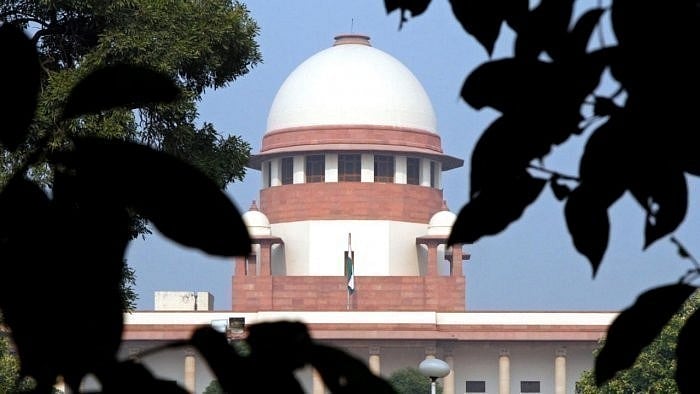
The Supreme Court of India.
Credit: PTI File Photo
New Delhi: The Supreme Court has acquitted a man awarded death penalty in a case of ghastly murders of his own brother, sister-in-law and their four children in 2012, saying the fabric of the prosecution case is full of holes and holes which are impossible to mend.
A bench of Justices Vikram Nath, Sanjay Karol and Sandeep Mehta allowed an appeal filed by Gambhir Singh, holding the Allahabad High Court failed to advert to inherent improbabilities and infirmities in the prosecution case.
"We find that the present one is a case involving utter lackadaisical approach on part of the investigating agency as well as the prosecution. The investigation of a case involving gruesome murders of six innocent persons was carried out in a most casual and negligent manner," the bench said in its judgment on January 28, 2025.
The High Court has in 2019 upheld the trial court's order in 2017 holding the appellant guilty in the case and sentencing him to the capital punishment. The apex court, however, set him free from jail, if not required in any other case.
It was alleged the appellant killed his own brother's family over the property dispute. The prosecution claimed both the brothers were involved in murder of their mother and the appellant's share in the family property was sold to his brother's wife for legal expenses. When out on bail, the appellant demanded his share back, resulting in the crime.
The court, however, found the prosecution has failed to prove even one of the the so-called incriminating circumstances i.e, ‘motive’, ‘last seen’ and ‘recoveries’ in its quest to bring home the guilt of the appellant-accused.
It said other than a bald aspersion made by Mahaveer Singh, the first informant and the brother of deceased Pushpa in his deposition, no plausible evidence has been brought on record by the prosecution to prove the story so as to establish the motive attributed to the appellant-accused.
"No effort whatsoever was made to collect proper evidence of the motive," the bench said.
Neither the particulars of the criminal case involving the murder of mother of deceased and the appellant were placed on record nor did the prosecution produce the documents evidencing the sale of the plot of land, owned by the appellant, the bench added.
"We do not find anything to suggest that the investigating officer, conducted any investigation whatsoever regarding the theory of motive. His evidence is totally silent on this vital aspect of the case," the bench said.
Similarly, the court also found the evidence of the witness, who claimed to have seen the accused in blood stained clothes, has been created by the prosecution for lending credence to its flimsy case, as against the appellant accused and to link him with the crime by hook or by crook.
The bench felt the testimony of cooked-up witnesses has been created by the prosecution to lend credence to its story in a case of blind murder. It also noted inherent infirmities in his testimony which completely discredited the prosecution’s case regarding the so-called incriminating evidence of recovery of weapons like axe and dagger.
"The utter negligence in conducting the investigation has contributed significantly to the failure of the prosecution’s case as against the appellant-accused," the bench said.
The court also pointed out that the public prosecutor conducting the trial and so also the presiding officer of the trial court were totally remiss while conducting the trial.
"The evidence of the material prosecution witness in a case involving gruesome murders of six persons including four innocent children was recorded in a most casual and lackadaisical manner, without adhering to the mandatory procedural requirements of the Evidence Act," the bench said.
